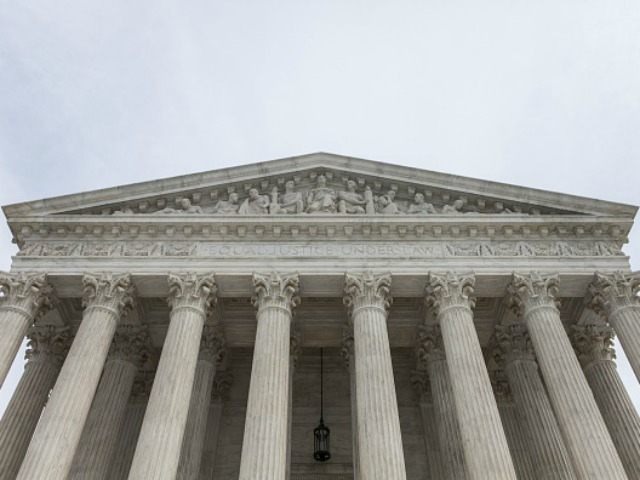On Monday, the Supreme Court heard a landmark case from California that could weaken teachers’ unions political clout nationwide, leaving them far less capable of supporting their Democratic Party clients.
In Friedrichs v. California Teachers Association, California teacher Rebecca Friedrichs sued the CTA, claiming that she had the right to choose whether to pay union fees or not. In one of the 27 right-to-work states, Friedrichs would have the right to refuse paying such fees, but California isn’t a right-to-work state. As a result, Friedrichs is forced to pay almost $1,000 per year in union fees so she can keep her job.
The unions argue that the mandatory fees they collect fund coverage for non-members. But according to law, forced union fees may not be utilized for politics, and because of that restriction, Friedrichs has asserted that she should have the right to reject paying the fees.
The Center for Individual Rights, arguing in Friedrichs on behalf of ten California teachers and the Christian Educators Association International, has argued that the collective bargaining of unions in the public sector is inherently political: “Whether the union is negotiating for specific class sizes or pressing a local government to spend tax dollars on teacher pensions rather than on building parks, the union’s negotiating positions embody political choices that are often controversial.”
As CIR delineates:
The CTA spent over $211 million in political expenditures from 2000 through 2009. CTA’s largest single expenditure (over $26 million) was made to successfully oppose Proposition 38 on the November, 2000 ballot, which would have enacted a school-voucher system in California (and thereby increased the potential employment pool for teachers). CTA also spent over $50 million to oppose three ballot initiatives in 2005, including Proposition 74, which sought to make changes in the probationary period for California school teachers; Proposition 75, which sought to prohibit the use of public employee agency fees for political contributions without individual employees’ prior consent; and Proposition 76, concerning state spending and minimum school-funding requirements.
The Court is being asked to overturn the 1977 Abood v. Detroit Board of Education decision, which ruled that the First Amendment permitted the government to condition a person’s employment in the public sector on that person’s paying fees to a union.
The Abood decision came under fire in the Harris v. Quinn decision of 2014, prompting rumors that the Court would eventually overturn Abood.
Friedrichs has been vehemently assailed by American Federation of Teachers president Randi Weingarten, who called the case an “assault on working people”; NEA president Lily Eskelsen Garcia, who said the case was “attacking working people”; and AFL-CIO president Richard Trumpka, blasting, “The case was brought by billionaires and wealthy CEOs like the Koch brothers who want to rewrite the rules to only benefit them.” All of the above union officials earn very generous salaries.
Meanwhile, California Governor Jerry Brown has come under attack from the San Diego Union Tribune for his cynical championing of the Local Control Funding Formula, which he signed in 2013. The law was intended to allot funds for school districts heavily populated with English-language learners and foster students, but 18 months after its signing, evidence had mounted that the money had been distributed to help raise teachers’ salaries instead.
The Union-Tribune noted that when confronted with the misdirection of funds, Brown said he would “look into it more carefully,” but didn’t. His appointees on the State Board of Education, and Superintendent of Public Instruction Tom Torlakson, argued the funds should be used for teacher raises.
State Finance Director Michael Cohen echoed that local control meant local control, thus preventing Brown from fixing the problem. The Union-Tribune bluntly called Brown the “hijacker-in-chief.”

COMMENTS
Please let us know if you're having issues with commenting.